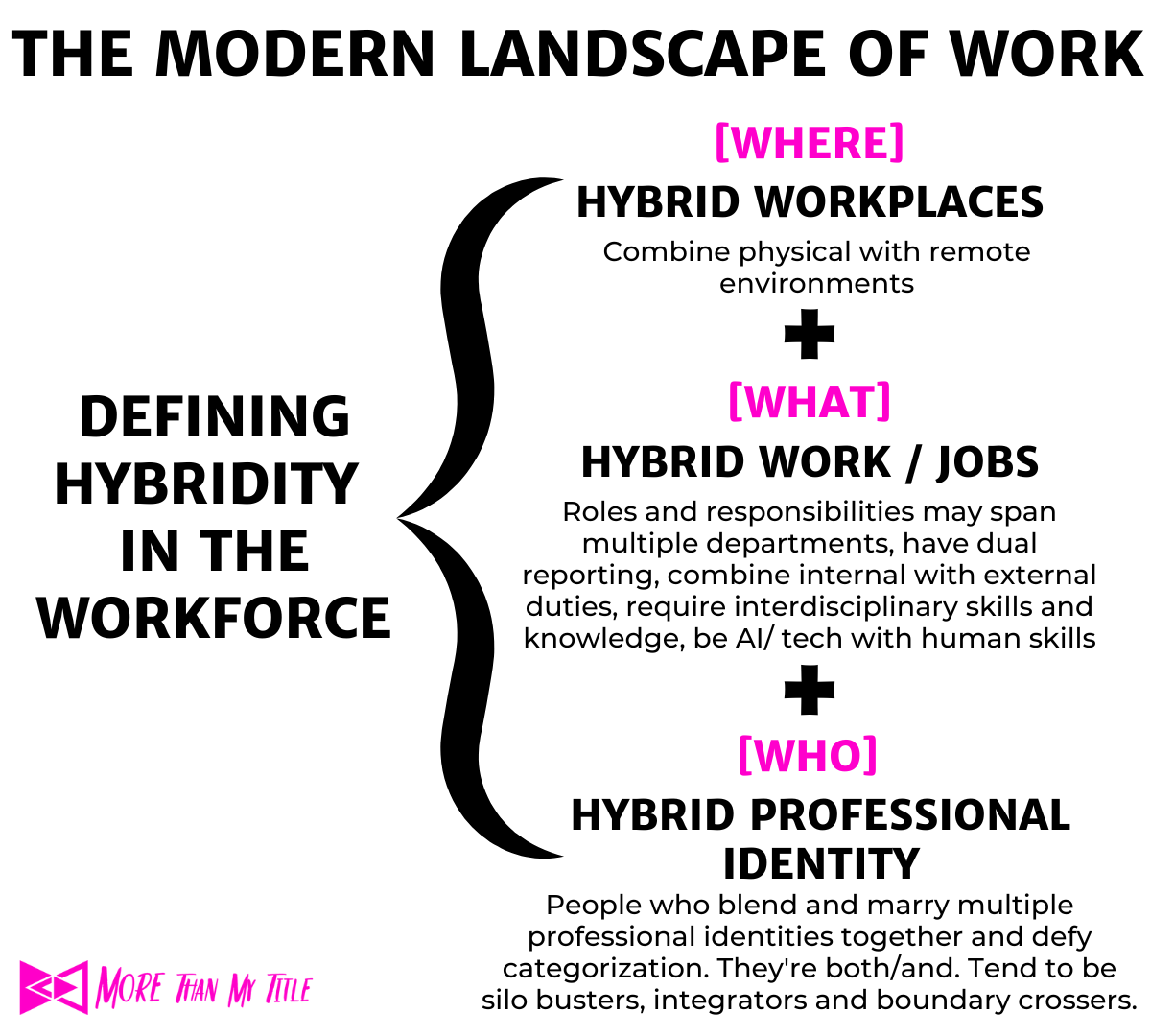Hybrid workforce- Defining what it means
This is how I think about "hybrid work." It's much more complex than how the media portrays it and how employers are addressing it.
If we open the aperture to three core pillars of the workforce:
Who
What
and Where
then we see more nuanced variations of hybridity.
Yet, we've been placing all of this under the umbrella of "hybrid work." This is inaccurate, misleading and rather confusing.
Hybrid work isn't just about the remote/in person dichotomy, and hybrid competence and hybrid workers aren't just about people who are skilled at navigating the "remote/in person" work situation.
There's a whole world of jobs, talent, products, and even company structures that are hybrid too, and we're overlooking this.
Let's start really talking about hybridity, work, and the workforce.
There are a LOT of interesting ways hybridity is at the root of new jobs, industries, markets, and opportunities. (Hybrid cars, athleisure, and cybersecurity to name a few).
In fact, hybridity has a ton in common with innovation because when two unrelated things "hybridize" or intersect, it sparks the development of something as of yet unknown and unnamed.
When something defies categorization, we tend to say "it's at the intersection of A, B, and C" until we come up with a better term to call it.
I'd love to see business outlets, influencers and social platforms like LinkedIn, Josh Bersin, Whitney Johnson, Heather E. McGowan, Jobs for the Future, Business Insider, Fast Company, Simon Sinek, Burning Glass Technologies, Institute for the Future, Eric Mosley, Workhuman, Francesca Gino, Chris Shipley, Lynda Gratton and so many others start to dissect and challenge what "hybrid work" really means beyond the "flash thinking" that's dominating our dialogue.
How do you define and see hybridity across the modern landscape of work?

